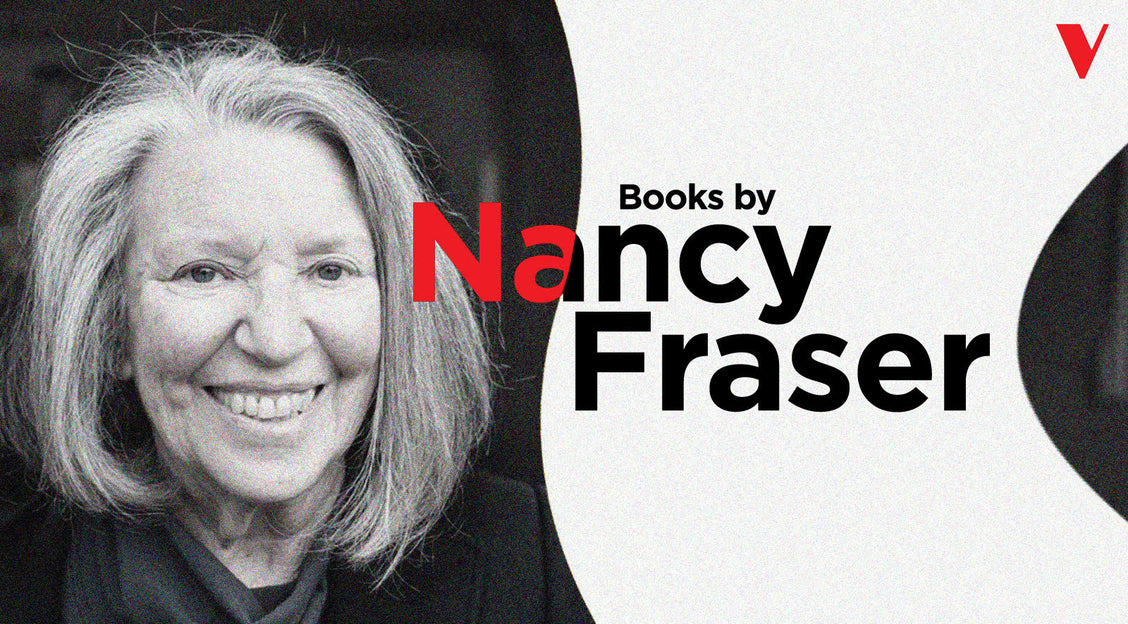Nancy Fraser: Reframing our Understanding of Marxist Theory
Nancy Fraser's new book, Capitalism: A Conversation in Critical Theory, offers an invigorated critique of twenty-first century capitalism. Complete your Nancy Fraser Bookshelf with this reading list!

Nancy Fraser's many groundbreaking contributions to Marxism and feminism make her a legendary figure on the left. No theory bookshelf is complete without her presence.
Her new book, Capitalism: A Conversation in Critical Theory, offers an invigorated critique of twenty-first century capitalism and an incisive study of our current conjuncture. Written alongside Rahel Jaeggi, the two political philosophers examine the "boundary struggles" at the heart of capitalism, and how we might build the non-capitalist future we so desperately need.
Student reading sale: ends September 30
30% off if you buy 3 or more titles
40% off if you buy 4 or more titles
Discount will be applied in cart. Separate orders can't be combined.
See all our Student Reading here.
Further watching/listening:
In this recently recorded in-depth interview Nancy Fraser discusses capitalism, gender oppression, Marxism with her Verso editor Sebastian Budgen.
Nancy Fraser joins the Verso Podcast in this episode to discuss exploitation, expropriation, and racial capitalism with Gargi Bhattacharyya.
Nancy Fraser: a Verso Bookshelf
"Nancy Fraser is a legendary radical philosopher grounded in the best of the Marxist and feminist traditions yet whose genuine embrace and profound understanding of Black, ecological, immigrant and sexual freedom movements make her a unique figure on the contemporary scene! Cannibal Capitalism is not only a singular gem - it is an instant classic for our bleak times!" -
"A brilliant synthesis of Fraser's many pathbreaking contributions to a Marxian theory of capitalism for the twenty-first century, beautifully written." -
"As the world is caught up in a whirlwind of multiple crises – social, ecological, political, civilizational – we desperately need to get our hands on and shut down the source. In this book, two of the most acute minds in critical theory point their fingers towards capitalism. This is the sort of sober and passionate thinking we need in a world careening out of control." -
"An eloquent, well-reasoned, and thorough account of the key institution of our time – capitalism. For them, capitalism is not only a mode of production but also an institutional order or form of life. Those who have followed Fraser’s discussion of recognition or justice, or read Jaeggi on the actuality of alienation, will cherish this brilliant contribution to understanding the world in which we live." - Robin Blackburn
"Nancy Fraser challenges us to reactivate the audacious spirit of second-wave feminism. Analyzing an imaginary aimed at eradicating exploitation as well as subjugation, she offers a rousing conclusion as to how we might mobilize feminism’s best energies against the perils of the neoliberal present." -
"Nancy Fraser is one of the most creative social philosophers and critical theorists of her generation." - Cornel West
"In a searing anti-capitalist manifesto written by three scholar-activists based in the US, Feminism for the 99% stands for all who are exploited, dominated and oppressed. ... Combining theory, rhetoric and principle, it reads as a call to arms." - Race & Class
"Nancy Fraser is among the very few thinkers in the tradition of critical theory who are capable of redeeming its legacy in the twenty-first century." -
"For more than a decade, Nancy Fraser’s thought has helped to reframe the agenda of critical theory. Today, when hopes flicker and shine against the background of pervasive repression, Adding Insult to Injury provides a singular stimulation." -
"A carefully wrought and provocative debate between philosophers with strong commitments to asking what a more just social life might be. This text will doubtless produce a spate of new and important scholarship in critical theory in its wake." -





